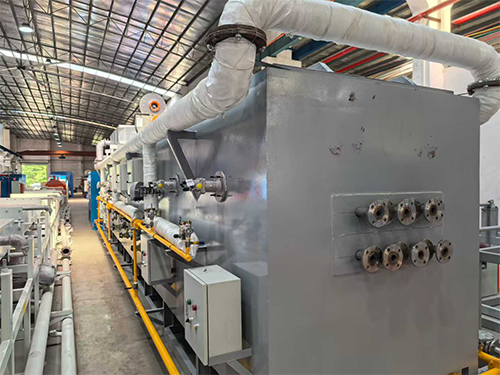Why does Oman use liquefied petroleum gas to heat the heat treatment furnace
Oct. 10, 2025
Heat treatment plays a crucial role in enhancing the mechanical properties and performance of metal components. Among various heating methods, liquefied petroleum gas (LPG) heat treatment furnaces have gained popularity for their efficiency, environmental friendliness, and cost-effectiveness.
1. Energy supply stability: Domestic resource guarantee
As a producer of oil and gas in the Middle East, Oman has abundant and low-cost LPG supply. The country's energy group directly participates in liquefied hydrogen and traditional energy projects, ensuring the stable supply of LPG. For industrial equipment such as heat treatment furnaces that operate continuously, stable fuel supply is crucial to prevent production interruptions.
2. Process compatibility: Meeting heat treatment requirements
Precise temperature control: The combustion flame temperature of LPG is moderate, and precise temperature control can be achieved by adjusting the gas flow rate and air ratio. This is crucial for heat treatment processes such as quenching and tempering, which need to be completed within specific temperature ranges. The flexibility of LPG ensures stable workpiece quality.
Avoiding workpiece oxidation: Compared to fuel-fired furnaces, LPG combustion produces fewer pollutants, reducing oxidation and decarburization on the workpiece surface. This is particularly important for the production of high-value products such as automotive parts and precision instruments, significantly improving the surface quality and mechanical properties of the workpieces.
3. Economic feasibility: Cost advantage
Low fuel cost: The price of local LPG in Oman is less affected by international market fluctuations, and the transportation cost is low. Long-term use can reduce the operating costs of heat treatment furnaces.
Fast equipment investment return: Although the initial investment of LPG heating furnaces is higher than that of electric heating furnaces, the fuel cost advantage makes its total ownership cost lower, especially suitable for large-scale production scenarios.
4. Environmental compliance: Conforming to sustainable development trends
Reducing pollutant emissions: The emissions of carbon dioxide, sulfur oxides, and nitrogen oxides produced by LPG combustion are lower than those of coal and heavy oil, meeting the requirements of the Oman government for industrial energy conservation and emission reduction.










